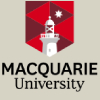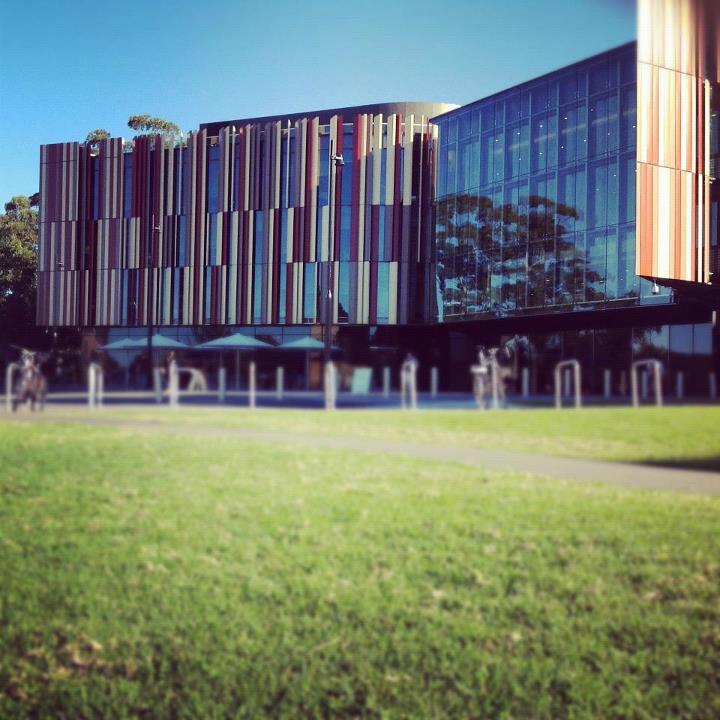Wallumattagal Campus Macquarie Park NSW 2109, Australia
Career Counselling

Macquarie University is a highly ranked research university located in Sydney, New South Wales, Australia. With over 44,000 students, it is renowned for its range of courses that foster innovation and collaboration among students, industry, and society at large.
The University has two campuses: Wallumattagal and City. The primary Wallumattagal location is spread over 311 acres in a suburban area of Sydney, and features most of the academic buildings, is home to 90% of the student population, is dotted with parks and gardens, and contains health, enter...
| Establishment year | 1964 |
| Total Students | 44,000+ |
| International Students | 9,203 (2021) |
| QS World University Rankings 2024 | =130 |
| Campus Size | 311 acres |
| Total Number of Campuses | 2 |
| University Website | https://www.mq.edu.au |
| No. of Schools and Divisions | 4 Faculties (Arts, Medicine, Health and Human Sciences, Science and Engineering, Macquarie Business School) |
| Nobel Prize Winner Alumni | 0 |
| No. of Education Programs | 607 (undergraduate), 962 (postgraduate) |
| Student to Faculty ratio | 29:1 (2021) |
Macquarie University offers undergraduate and postgraduate courses through 4 Faculties, which are further subdivided into schools and departments.
International applicants - both undergraduate and postgraduate - need to meet the minimum academic performance and English proficiency requirements.
Undergraduate international applicants must submit proof of completion of a Year 12 examination equivalent to the New South Wales High School Certificate (HSC). A full list of accepted qualifications can be found on the relevant University page. Each course has a minimum cut-off score; the University maintains this database as well.
Postgraduate international applicants should use the course finder tool to check the eligibility criteria for their programs of interest: all courses mandate completion of a recognised undergraduate degree before entry into Macquarie, but some courses have additional performance criteria. Specific programs may also require the submission of CVs, portfolios, and appearances in interview stages.
All international applicants must satisfy English proficiency requirements to be accepted to study at Macquarie University. The University accepts five test scores - TOEFL, IELTS, OET, Cambridge, and Pearson - with a pandemic-era relaxation of score recency of three years within the date of application. Each course has specific minimum English proficiency performance criteria required.
Domestic entry requirements for undergraduate courses are fairly simple: each course has a minimum guaranteed entry score, which is based on the Australian Tertiary Admission Rank (ATAR) or equivalent high school qualification or diploma, after applying any adjustments necessary to ensure equity.
Domestic eligibility criteria for postgraduate students are similar to those for international PG applicants: each course has specific requirements for performance in undergraduate degrees.
Domestic applicants to undergraduate courses at Macquarie University should follow these steps:
Postgraduate domestic students follow a similar process: however, they can also choose to apply directly to the University instead of via the UAC. Certain courses (e.g. Master of Applied Linguistics) may have supplementary forms to be filled out online.
International applicants (both undergraduate and postgraduate) to Macquarie University must follow these steps:
Undergraduate international students can use the course fee calculator tool to estimate their annual expenditure on tuition fees (which vary with the number of credits taken). For example, the Bachelor of Arts degree costs approximately $35,800 per year. The Bachelor of Engineering (Honours) course costs $40,800 per year on average.
The tuition fees for international postgraduate students are typically in line with those for undergraduate honours degrees in the same fields of study. For example, the Master of Environment degree has associated tuition costs of $40,800 annually, and the MBA degree costs $42,000.
All international students must also invest in compulsory overseas health insurance.
Domestic (Australia and New Zealand) undergraduate students have their tuition fees reduced under the Commonwealth Supported Place (CSP) scheme. Therefore, they only pay a Student contribution amount, which is around 25% of the full international tuition fee. The student contribution fee in CSPs is one of these amounts: $4,124, $8,301, $11,800, or $15,142, and varies by course.
Domestic postgraduate students typically pay domestic tuition fees for each course rather than the lower student contribution fees. These are still lower than international PG tuition fees: for example, the Master of Environment degree costs $29,900 for domestic candidates (30% less than the international fee), though the MBA degree has domestic tuition fees of $42,000 per year, in line with the international fee.
In addition to tuition fees, the University also charges a Student Services and Amenities Fee, capped at a maximum of $326 for 2023.
The University provides a living costs calculator, to help students estimate how much they should budget towards housing, food, telephone and internet bills, health insurance, personal items, and transport. The Study in Australia website estimates the minimum 12 month living costs at $21,041.

The main Wallumattagal campus is located in Macquarie Park, within 15 km of the Central Business District of Sydney. It occupies a 311 acre site with multiple green areas, and houses over 40,000 students. This mini-city has a hospital, daycare centres, cafes, restaurants, bars, and sports and fitness services. The Macquarie University City Campus is located in the middle of Sydney's CBD, offers cutting edge innovation facilities, and houses some business and law classes and networking events. Both locations have seen extensive investment to upgrade their architecture, laboratories, and studios, with over a billion dollars having been spent in the past decade on megaprojects, including the new Arts and Central Courtyard Precincts.
The Sport and Aquatic Centre at Macquarie University contains several swimming pools, a health club with world class facilities, multiple squash and basketball courts, and even a martial arts dojo! Students can avail themselves of one of the flexible membership options, and learn from experts in each field to level up their skills. In addition to sports and workouts, the Centre runs over 85 group fitness classes every week, from introductory movement and yoga classes to high intensity training. There are classes for beginners - for example, the successful "learn to swim" program - and for experts - for example, customised personal training.

The Macquarie University Sport Fields host several outdoor sports, from football to hockey, and T20 cricket to tennis. Social sports competitions are held every evening around the year, and students who would like to play a game can register with the casual sports administrator on site in real time. Players can choose either the competition format, where there is a longer term team commitment, or the sessional format, which is more short term. Eighteen sports clubs offer students and staff the opportunity to learn from the best, while the most skilled sportspeople at Macquarie can participate in tryouts and represent the University at the UniSport Nationals in Australia.
Graduate employability is a priority at the University. The Macquarie Career and Employment Service provides advice and guidance to determine the right career for each student, supports candidates with insights on employers' hiring requirements for each role, and assists students with their skills and overall career profile. From online tools and workshops to in person and online sessions with career counselors, to online and offline networking events and seminars, the service aims to equip students and recent graduates with everything they need to land perfect jobs. This is an ongoing effort: the Macquarie Student Employment Service matches students with prospective employers for part time, virtual, and full time roles during and after their degrees.
Macquarie University awards almost $6 million in scholarships to over 750 students every year; international students can use the University's online tool to find scholarships relevant to their countries of origin, and sort by award criteria, from academic to sports merit, and social to financial disadvantages.
The prestigious Vice Chancellor's International Scholarship is awarded to high performing international students commencing an undergraduate or postgraduate degree; a nomination form must be filled out at the time of application, and the highly selective academic award entails a payment of $10,000.
There are also scholarships specific to certain countries. For example, the India $10,000 Early Acceptance Scholarship is awarded to UG and PG students from India who accept their admission offer and pay the initial deposit fees before the first deadline.
The University is committed to keeping equity in mind while distributing financial aid: for example, the Faculty of Science and Engineering Women in STEM Scholarship is for excellent international postgraduate or undergraduate students. It entails an award of $5,000 per year to female-identifying candidates studying Science, Engineering, and IT degrees, with an additional preference given to those who suffer additional disadvantages.
There are several grants and scholarships available to domestic students as well: some of these require candidates to apply via the UAC or to specific departments, while others automatically consider all eligible students based on their applications.
Most domestic scholarships are awarded based on equity criteria and social or financial hardship; among the prominent academic merit scholarships is the Macquarie Business School Academic Excellence Scholarship awards $5,000 or $10,000 annually to undergraduate domestic students in the Faculty of Business, subject to academic excellence criteria.
The Macquarie University Higher Studies Scholarship is for talented postgraduate domestic students facing economic and social disadvantages, with an annual award value of $11,312.
